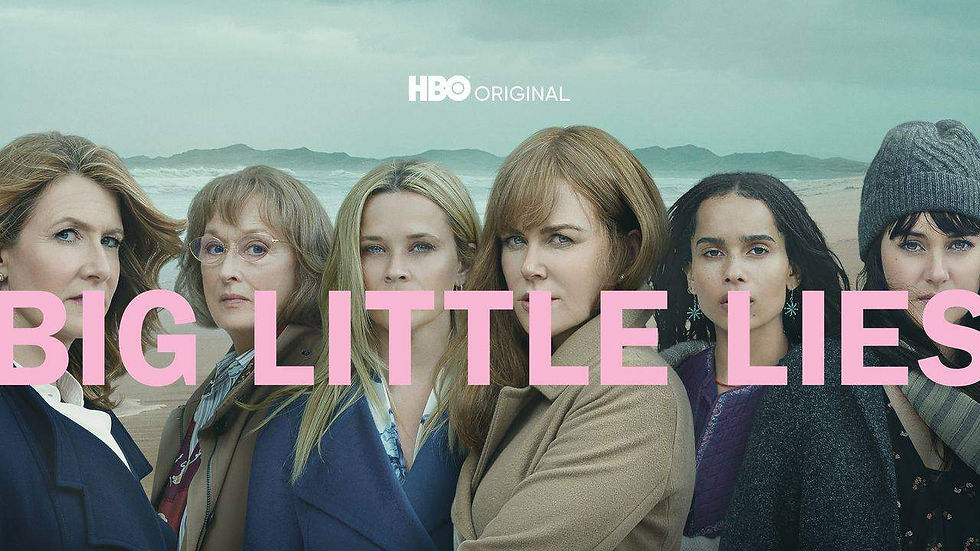Big Little Lies
- drewemosser
- Aug 12, 2024
- 3 min read

When thinking of inclusivity, the mind typically goes to racial, gender, or sexual orientation representation. This series is led by a cast of extremely talented women, so it checks off one of these boxes. However, this show displays another form of representation that I really admired- specifically in Nicole Kidman's storyline. Her character, Celeste, is in an abusive relationship and we see her repeatedly being physically abused by her husband. Shailene Woodley's character Jane received a similar treatment, as it was revealed she was raped by Celeste's husband. I feel they handled these hard-hitting topics in the perfect way. Brutally honest. Obviously both of these storylines are heartbreaking to see and bring some level of discomfort to the viewer, but the importance of showing these relationships and the vicious nature of them drastically outweighs any displeasure the viewers may face.
Resonating with situations in TV or film is often what gets people to realize that the situation they themselves are in is dangerous. Depictions like these can save lives, and this raw and authentic portrayal is only further proof of how dire the need for representation is.
I find it difficult to condemn this show for it's lack of diversity, since I haven't read the book it was based on. Blind casting is becoming something more and more widespread making it a potential viable option for this series, but I'm not sure if race has any relevance in the book series. Therefore, I guess the creators of the show aren't to blame but the author of the series herself is. Yes having one of the main five characters be mixed is some level of diversity, but I truly don't feel that making more of the characters people of color or any other sort of minority group wouldn't have taken anything away from the central themes and concepts of this series. It is also clear that having major A-List stars was a main part of this show's appeal, but once again this is only a small part of a much larger issue. It may not seem like a big deal, but have you ever thought about why the majority of A-listers are white? This could be caused by a number of factors- a lack of people of color in film crew positions which leads to a lack of accurate minority perspectives, a systemic lack of assurance for people of color feeling comfortable pursuing a career in the entertainment industry, as well as the film industry's refusal to cast more than one person of color in a project just to get "diversity points" and not because they felt their story really needed to be told. I could write an entirely separate article on just this (which maybe I should as I feel it is going to be a consistent issue in the shows I am reviewing) and of course I am not trying to blame this show for a lack of diversity in this industry that has been perpetrated for decades. I solely feel it shouldn't be deemed impressive every time a show consistently features a larger array of minorites. Why are people still being praised for the bare minimum?
I am very glad this show was picked up for a third season since I thoroughly enjoyed it and am intrigued to see if this new season will depict a wider variety of perspectives. Although, to be completely honest, I'll watch just about anything if Meryl Streep is in it. So, even though her character is fairly unlikeable, I still want her back! If that's a crime, then lock me up!






Comments